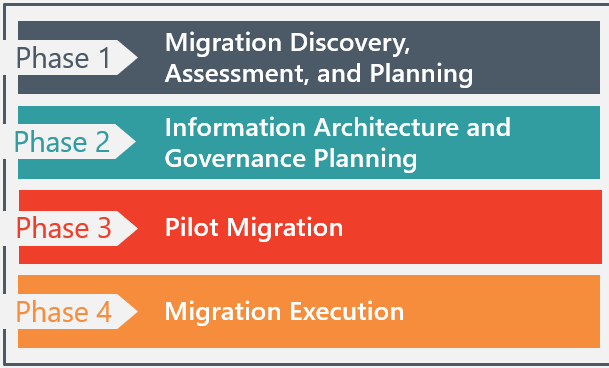Miss the original broadcast this post is based on? You can watch the webinar on-demand here.
When the Belgium Police were looking to mobilize their workforce, they knew they needed to move away from their legacy system. They were unable to work remotely due to being restricted to only having access to pertinent files and information in their physical building.
Seeing the need to digitally transform and mobilize their workforce, they decided moving to Microsoft 365 would be the best option. In our webinar “Migrate, Mobilize, and Manage Office 365: Learn How the Belgian Police Did It,” Vincent Moreau from the Belgium Police gave us a full breakdown of how they were able to do this.

Why They Chose Microsoft 365
When it came to digitally transforming their organization the Belgian Police were aiming to enhance their team collaboration, exchange information more easily, and make communication easier all while keeping their work secure.
The key reasons they chose to migrate to Microsoft 365 were for:
- Optimal service delivery from Microsoft
- The ecosystem of specialized work applications
- Information, documents, and tools available anytime and anywhere
- Secure access
- Single sign-on to connect to multiple services
Developing a Migration Framework
Once they knew they wanted to move to Microsoft 365, the Belgium Police devised a plan to get there quickly and efficiently. When it came to creating their migration plan, they had to consider:
- Speed to completion.
- The total duration of the migration project.
- The cost of the project.
- Regulations & compliance to adhere to.
- And many other factors
This where a migration framework is of the utmost importance for organizations that are looking to make the move to the cloud. Comprehensive migration plans should include ways to avoid sprawl with governance, a pilot confirming the validity of the business plan, and a focus on high priorities that ensures quick wins. Here’s a high-level snapshot at what the stages of migration might look like:

Mobilizing & Empowering the Police Force
With a successful move to Microsoft 365 the Belgium Police immediately began making the move to mobilize their workforce. They no longer were tethered to a legacy system that required them to be on-prem! This mobilization meant that they could get information anywhere and at any time, which made collaboration easier than ever.
The enhanced collaboration became apparent very quickly when they began using Microsoft Teams to collaborate with outside police organizations and groups to coordinate during the Tour de France. By having a central point of communication for everyone to use, keeping tabs on the race went much more smoothly. Using Microsoft Teams early on in their adoption of moving to Microsoft 365 was a win that made adoption all the easier for the entire organization.

Accelerating Digital Transformation to Enable Remote Work
When it comes to accelerating digital transformation, organizations have to ensure that they have the tools needed to make information accessible no matter where their employees are located. By having business technology accessible regardless of location, they can be more efficient than ever before.
Not only that, but there must be self-serve technology for employees to use. This includes bots–like AvePoint’s self-servicing backup bot, AVA–that helps organizations restore lost or misplaced files. With tools like these to assist employees, Microsoft 365 adoption and usage will increase exponentially.

